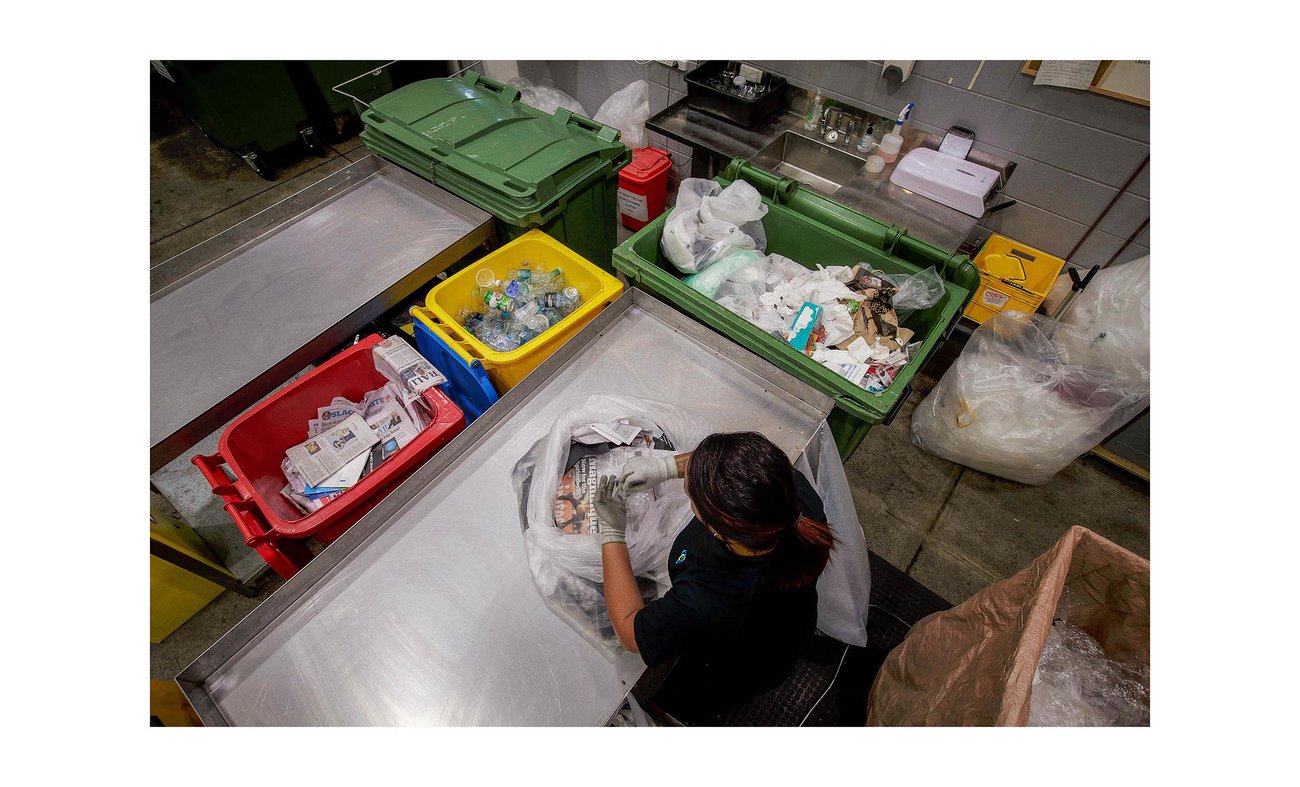Trash compactor: Four NZ entities have come up with an innovative way to reduce aircraft cabin waste

The joint venture between global facilities management company OCS, Auckland Airport and the Ministry of Primary Industries (MPI) in collaboration with Air New Zealand, has developed an innovative way of reusing processed aircraft cabin waste, with more than half (57% of 114 tonnes) being recycled.
And the new biosecurity and transitional waste facility at Auckland Airport is attracting attention from other international airports who see this initiative as an ideal method for recycling reusable aircraft cabin waste.
OCS wasteline solutions manager Tony Phillips says a waste audit quickly realised the opportunities of the collaboration. “The innovative solution was to build a waste management facility,” he says. “Auckland Airport repurposed a run-down building and OCS staffed the facility with seven shift workers who were trained to sort the waste to MPI specifications.”

Auckland Airport sustainability manager Martin Fryer says prior to the facility opening last year, 40 tonnes of cabin waste was automatically compacted, steam sterilised and buried in landfill each month to meet MPI’s biosecurity risk requirements.
He says frustration with the waste management process and lack of innovation was the inspiration behind the change. He went to OCS – who also specialise in sustainable waste solutions to help them come up with an innovative idea.
“The waste facility has since exceeded expectations in terms of the amount of waste reused and recycled and our goal is to reach 80 percent diversion of the airport’s waste from landfill by 2030,” he says. “Working with OCS, MPI and Air New Zealand collaboratively to make a step change in waste management has created a win-win for all parties.”
MPI senior quarantine officer Doug Farr says it was a daring move to think outside the box but he was happy to work with OCS and Auckland Airport to identify non-risk items that could be streamed off individually for re-use and recycling.
“The new process of sorting waste has actually made the real biosecurity risks easier to manage, as genuine risk items are easier to steam sterilise once separated from a pile of other waste,” he says.
Air New Zealand Head of Sustainability James Gibson says that waste minimisation has become priority for us under our sustainability framework: “While we’ve seen great recycling rates from our ground sites, this facility has allowed us to substantially improve our approach to international inflight waste management, which is subject to far greater restrictions due to biosecurity controls.”




